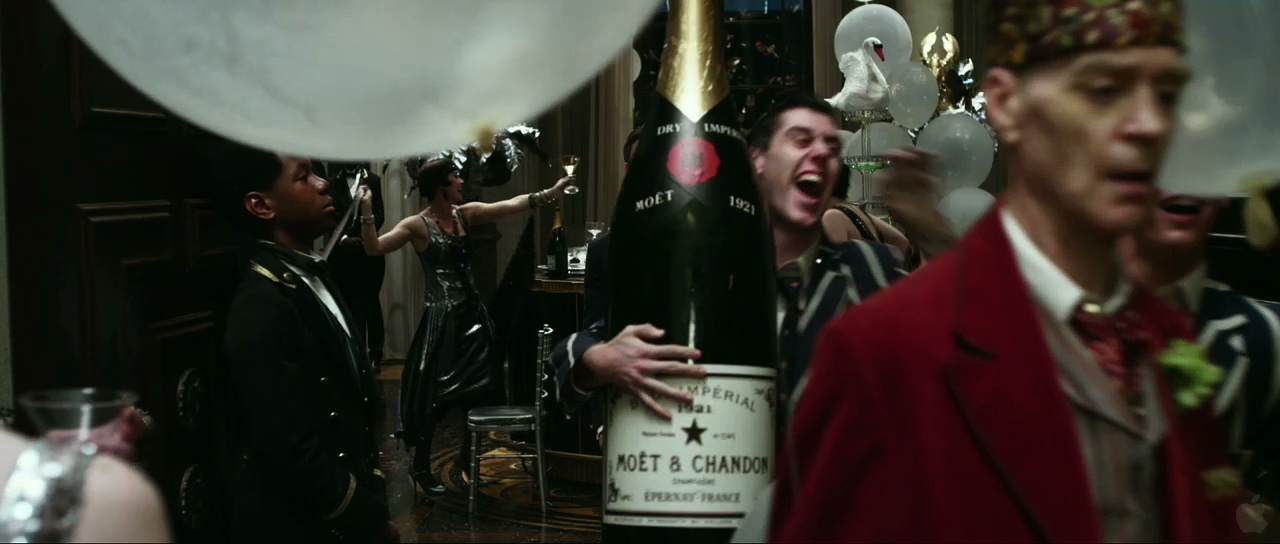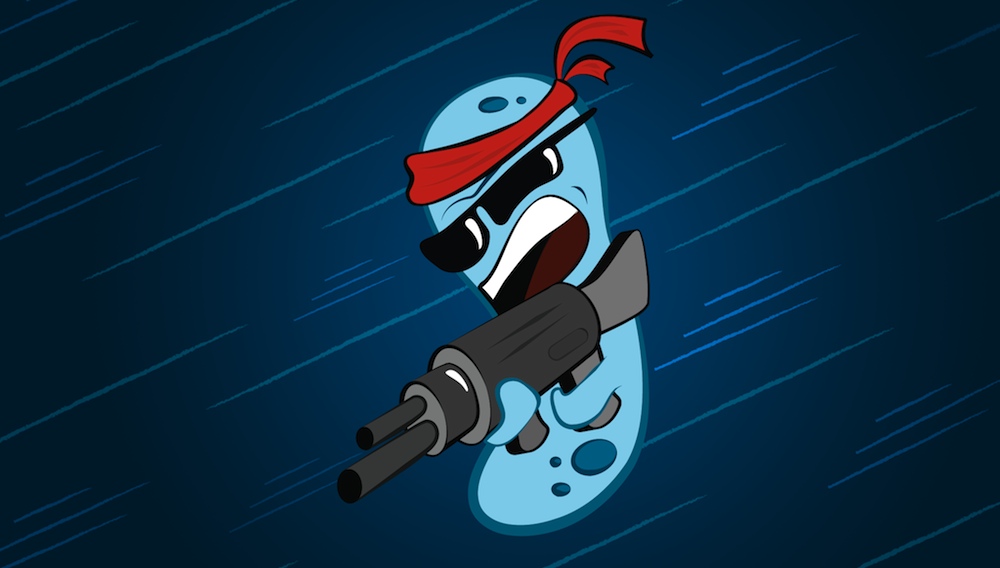The New Media Isn't All That New
{% blockquote -Bill Carter http://amzn.to/JtndWC The War for Late Night: When Leno Went Early and Television Went Crazy %} Every night the show, for good or for bad, defined who he was. The act of stepping out nearly daily onto a stage and standing in front of people, millions of people, and soliciting laughs almost defined the term narcissism. Every performer would have needed an outsize ego to get through that crucible every night. Clearly the two giants of this late-night era had that in common, but they reacted to it in totally opposite ways. {% endblockquote %}
Podcasting is a medium in its relative infancy, not even a decade old. It’s still fertile territory with room for growth and lessons to learn. I think we just learned a big one.
Last week, when John Gruber moved The Talk Show from 5by5 to rival network Mule Radio Syndicate, leaving co-host Dan Benjamin behind, it was a reminder that the rules of old media still apply to this new and growing format. Much like television, podcasts that sell ads live or die by their audiences’ commitment and support. The audiences may be smaller and the stakes may be lower, but the game is ostensibly the same.
When abrupt change occurs, audiences want answers. They want to know what they don’t see. They want to choose sides. It’s a small-scale media bonanza.
On Friday, I posted and continually updated my “Why Did John Gruber’s Talk Show Leave 5by5?” article because I was just as confused as everyone else. Something smelled weird about the whole affair and I decided to share what I was thinking at the time. It quickly became the most popular post in my 3+ years of writing the candler blog, and the comments on the post turned into a forum for confused fans. They commiserated and conspiracy theorized, they corrected my mistakes and pointed me to new information, they joked around and thanked me for tracking the story. Absent statements from Gruber and Benjamin statements, this kind of speculation was about all people had.
And I like to think it helped.
On Monday, Dan Benjamin responded to all the noise about Gruber’s departure with a four minute, heartfelt statement. He offered no details about what actually happened behind the scenes, but he admitted being blindsided by Gruber’s taking the show, and its name, to another network. It reminded me of Conan O’Brien’s “People of Earth” press release.
For his part, Gruber has remained nearly silent on the matter, only offering breadcrumbs of information to let readers and listeners know that he is aware of the backlash against him. On Monday, for example, well after Dan’s statement, he linked to the Wiktionary entry for Sturm und Drang, the German phrase for a period of emotional intensity. At this point, I don’t think anyone expects he will say anything more concrete on the matter.
Anyone who hosts a podcast, or writes a blog for that matter, does so with a healthy dose of self-importance. Wanting to be heard, telling others that your voice is the one worth listening to, is inherently narcissistic, at least on some level. If a broadcaster, no matter the medium, can’t admit that him or herself, then they probably won’t be able to cultivate an audience.
The excerpt at the top of this post refers first to David Letterman, then to his rival, Jay Leno. It gets to the heart of entertaining, and I think it applies to both Benjamin and Gruber.
Listeners clearly needed some kind of closure. Dan Benjamin provided that with his statement and Gruber has coped publicly in his own, more insular way. They are different sides of the same coin, different ways of approaching the same tumultuous situation. As Bill Carter put it about the late night wars, “…they reacted to it in totally opposite ways.”
By waiting silently as rumors swirled all weekend and then saying exactly what listeners wanted to hear, Benjamin managed to out-class Gruber. It’s possible he did this because he’s a genuinely nice guy who wanted to do what he saw as the right thing. Likely, even. But it was also a well-timed move that accomplished two things:
- It allowed him to move on with his shows without ever mentioning this debacle again.
- It painted Gruber as the progenitor of the split.
He said nothing untoward, nothing against John, but he certainly made it clear that the move was his idea and that he was hurt by the launch of the new show.
I’d always thought that if we weren’t going to do the show anymore we’d retire it together. So I was a little surprised and disappointed when I learned that John had decided to do the show on his own and call it The Talk Show.
It was a deft move and an incredible bit of broadcasting. Even with all the praise he could put on John, he made it clear to listeners that this is still 5by5, where your pals are. Best of luck to John, yes, but don’t anyone forget what this project is about. We’re the nice guys.
Gruber’s new Talk Show may well outstrip its previous incarnation. In fact, it quickly rose to the become one of the top ten most downloaded podcasts in iTunes over the weekend. Of course, almost all of the ratings and reviews on the show are extremely negative, from former listeners who gave it a try and chided Gruber for the move. But, just like terrestrial radio and television, the charts do not take reviews into account. And neither do advertisers.
So what’s the point of all this? Why conflate this silly little tiff with the wars of television’s behemoths?
How we consume media is rapidly changing. As more bandwidth is made available and users are educated about ways to seek out new media, we can expect more and more of these kinds of “events.” 5by5 and other podcast networks cultivate niche audiences who may be small in numbers but exude much more passion per capita than fans of national, broadcast programs. That is likely where all media is headed.
No national paper looked into The Talk Show move; no talking heads split hairs over what went wrong and what will happen next. But there was this site. And for every show with a small, committed audience, there are many sites just like it.
This is the new media, and it bears a striking resemblance to the old one. As do our heroes, hosts and narcissists, who are often one and the same.
Vulture Digs Deep Into Dan Harmon's Firing
{% blockquote -Josef Adalian http://www.vulture.com/2012/05/dan-harmon-community-firing-hard-truths.html The Hard Truths Behind Dan Harmon’s Community Ousting %} As much as we may love Harmon’s work on Community, it is our journalistic duty to take a clear-headed, unbiased look at just what went into a decision that left so many people Chang-ry and dean-sappointed. {% endblockquote %}
Great, comprehensive look at the showrunner’s ouster.
Dante Basco Teases Rufio Movie ⇒
Dante Basco, who played Rufio in Steven Spielberg’s 1991 Peter Pan redux Hook, speaking with CraveOnline:
Rufio’s a great iconic character for a certain generation and definitely something I’m always associated with, proud to be associated with which is cool. Actually there’s a film in development, the Rufio film, where a hotshot group of kids from the East Coast graduated and they wrote this whole script, the prequel to Hook and it’s the Rufio story. We have it right now with a director, Rpin Suwannath who’s doing the new Zorro for Fox. He has the script and he’s attached to the film and I’m attached to produce so that’s actually in development right now which’ll be cool, a Rufio for a whole new generation.
This is a reboot I could get behind. The alternate Neverland put forth in that film was fantastic and a place that would be fun to return to. Yet, while Basco has an incredibly youthful appearance1, he is now 36; he was 16 in the original.
I’m most interested in the years after Pan’s departure, when Rufio rose to become the group’s skateboarding, swash-buckling id. I’m not sure Basco can still pull off 16, and since you don’t age in Neverland, if he were to play an adult Rufio that would mean…[gulp]…they would have to rehash the plot of the original and have Rufio leave and return a weary old dad.
So I should rephrase. Maybe this is a reboot I could get behind.
I read this completely wrong the first time around. Basco is attached to produce, not star, at least not yet. So perhaps I’ll hold my tongue until I know more…and read it through thoroughly.
-
He played a high school student in the 2006 film, Take the Lead. ↩︎
Loach on Censorship ⇒
Charlotte Higgins reporting from Cannes for The Guardian on Ken Loach’s new film, The Angels’ Share:
According to director Ken Loach […] discussions with the film censor entered the “world of surrealism”. He said: “We were allowed seven cunts… but only two of them could be aggressive cunts.”
Oh, also:
But Loach’s long-time producer Rebecca O’Brien said it was “offensive” that the film was allowed a maximum of seven instances of the word in order to secure it a 15, rather than an 18 certificate – especially when “we have made films with heavy scenes of torture and with water-boarding and fingernails being pulled out and they have been given a 15 certificate.”
I can hardly imagine the MPAA here in the US giving a film with two or more instances of “cunt” an R rating, let alone anything lower. At least we’re not the only country with a monolithic board that stoops to surreal levels of censorship, I guess.
Finally, Loach makes his case:
“The British middle-class is obsessed by what they call bad language. The odd oath, like a word that goes back to Chaucer’s time, they will ask you to cut. But the manipulative and deceitful language of politics they use themselves. So I think we should re-examine what we mean by bad language and have respect for our ancient oaths and swear words which we all enjoy.”
Hear, hear.
(via Dave Itzkoff.)
Readlists and Telling a Story

Readlists Logo
This morning, Arc90, makers of Readability1, introduced Readlists. Here’s how they describe it:
What’s a Readlist? A group of web pages—articles, recipes, course materials, anything—bundled into an e-book you can send to your Kindle, iPad, or iPhone.
Users can create lists of great content they find around the Web and package them together into one group, which can then be shared, downloaded as an eBook or embedded on a Web site. Of course, each article can also be sent to Readability right from the Readlist page.
The site launched with a few featured lists, like this one from Jeffrey Zeldman dubbed “User First, Mobile First, Content First.” When you create a Readlist, you can add a blurb describing the list. In Zeldman’s case, “Designing for a content-focused, increasingly mobile, browser- and device-agnostic web.” Then the articles are listed in numeric order (set by the Readlist creator) with title, author (if available), base URL and a short description of the piece which is pre-populated with 30-40 words of the linked material.
This feels like another service that tries to make sharing more convenient but, in so doing, helps silo the open Web. Storify is another example of this. I often feel the impulse to document events I see unfolding in Storify, but whenever I get the urge I remember that I already have a platform for sharing such things: this Web site.2
I realize not everyone wants to run their own Web site or blog, but it’s certainly nice to own the content you create. Putting together a list of relevant articles to read is no small thing, tantamount to putting together a syllabus or editing a scholarly compendium. Doing it isn’t that hard, but doing it well is. Taking that talent and giving it away is a shame.
Readlists isn’t for me, but I’m sure there is an audience for something like this. If you find yourself getting good at telling a story by stringing together disparate strands of knowledge and garnering an audience, I suggest you go out and plant a Web site somewhere. It won’t take much longer than reading this article.
The Best Frame from The Great Gatsby Trailer
The trailer for Baz Luhrmann’s The Great Gatsby hit the web this evening. This is my favorite frame from it:

Great Gatsby Still
Giant champagne party!
In all honesty I’m rather excited for this film, even if Australia was nigh unwatchable.
Chinese Company Buys AMC Theaters ⇒
{% blockquote -Michael Cieply http://www.nytimes.com/2012/05/21/business/global/amc-theater-deal-links-china-to-hollywood.html The New York Times %} The Wanda Group, a Chinese conglomerate with extensive interests in the entertainment business, has agreed to acquire AMC Entertainment, North America’s second-largest movie theater owner, in a deal that is valued at $2.6 billion, including roughly $2 billion in assumed debt, the companies said Sunday. {% endblockquote %}
I fail to see how AMC got itself into the position that it needed to be bought out, what with the cost of tickets and popcorn and sugar water these days. This is good news though, and hopefully American moviegoers will see benefits:
In addition to the $2.6 billion value assigned to AMC’s debt and equity in the deal, Wanda is expected to invest $500 million for what the companies called “strategic and operating initiatives.”…it might be used to retire debt, acquire new theaters or fix up old ones.
Keep an eye on this, though:
In addition to its theaters, Wanda produces and distributes films in China. As word of Wanda’s negotiations with AMC became public in recent weeks, some American executives have privately said that Wanda might eventually use newly acquired American theaters to help pry open an export market for Chinese-made films.
I’d be happy to see more Chinese films, but there’s a reason theaters aren’t owned by movie studios.
Coda 2 and Diet Coda ⇒
Panic just announced an update to their popular plain text coding app, Coda, and introduced an all iPad app to boot:
Diet Coda takes everything we’ve learned about web code editing, and shrinks it down into the beauty and simplicity of your iPad. The perfect companion to Coda — literally, since the two can work together — it’s the ultimate way to make quick fixes while you’re traveling light.
I covered SXSW this year with nothing but my iPad. To deploy new posts to this site, I used Panic’s excellent SSH app, Prompt. Diet Coda looks like an excellent addition.
And Coda 2? Just wait ’til you see what this thing does with CSS. Insane.
Both go on sale Thursday, May 24th.
Don't Blame the Advertisers

Rogue Amoeba Mascot
This tweet really bummed me out.
I disagree with Gruber often, but I would never hold his opinions against the advertisers that are featured on Daring Fireball. He’s not Rush Limbaugh. He didn’t say anything inflammatory that has far-reaching effects that will impact my life.
If we take Mule Radio Syndicate at their word, John approached them first. So why try to bleed an advertiser who likely had no knowledge of any such dealings.
Rogue Amoeba makes some truly excellent software. Piezo, the app that sponsored episode 1 of the new Talk Show, is a great, simple recording app that is gorgeous to look at. I’d recommend it in a heartbeat.
If listeners are upset with Gruber or Mule, they can vote with their ears, so to speak, and just not tune in. Then the advertisers will leave of their own volition, or not. It’s their call.
But boycotting makers of truly wonderful software over this? We can do better.
Regarding The Talk Show ⇒
Dan Benjamin says everything listeners wanted to hear all weekend. Class act.